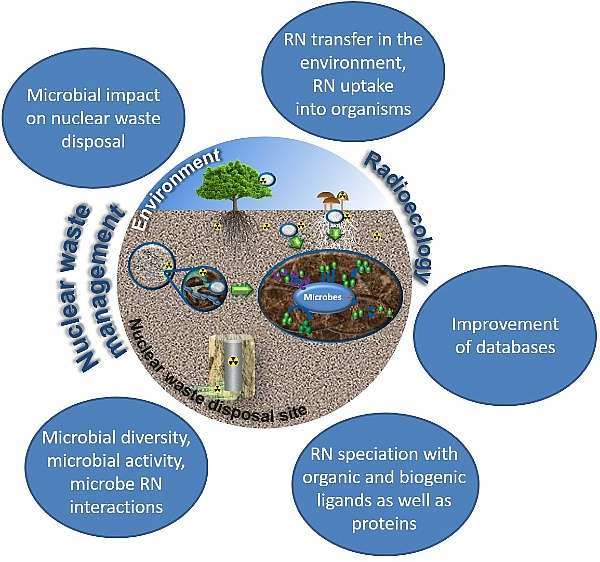Department of Biogeochemistry
In the environment physical, chemical and biological processes influence the migration behavior of long-lived radionuclides (RN). In the biosphere mainly prokaryotic and eukaryotic microorganisms are involved in element cycles and the mobilization or immobilization of many radioactive and non-radioactive elements. Furthermore, their physiology and biochemistry are optimized to allow them to live and survive in almost all environments existing on earth even over long periods of time. Besides that, the interaction of radionuclides with microbes and higher organisms determine the fate of the radionuclides in nature and in the end their potential threat to human health. The aim of the research in the Department of Biogeochemistry is to identify dominating processes in the ecosphere including the food chain, to understand the biochemistry of the processes on a molecular level and to estimate their relevance for the radionuclide migration and transfer not only in nature but also in an engineered subsurface e.g. a deep-geological repository for radioactive waste. Beside the fundamental research it is also intended to generate thermodynamic data to improve the safety assessment modelling.
